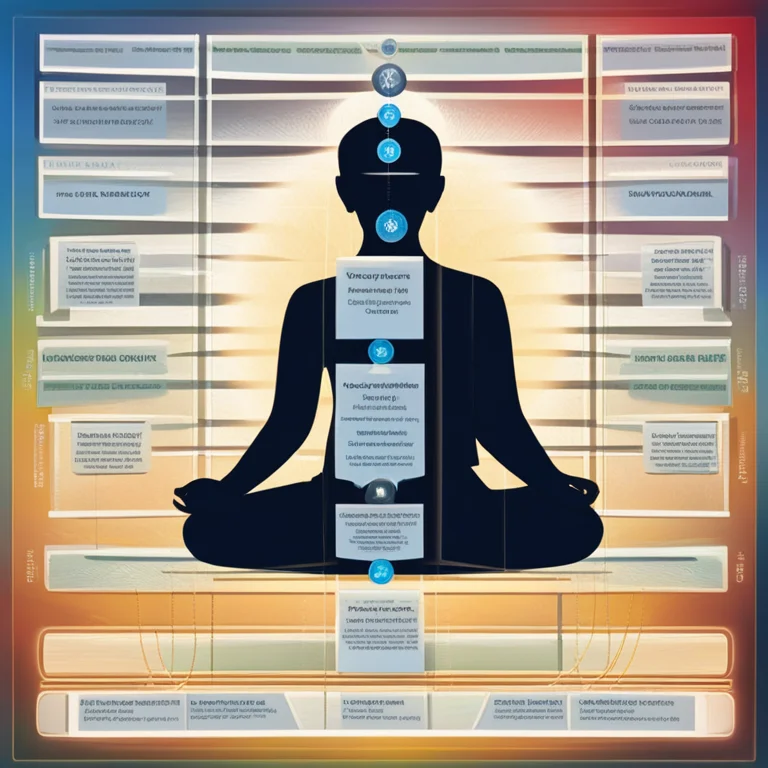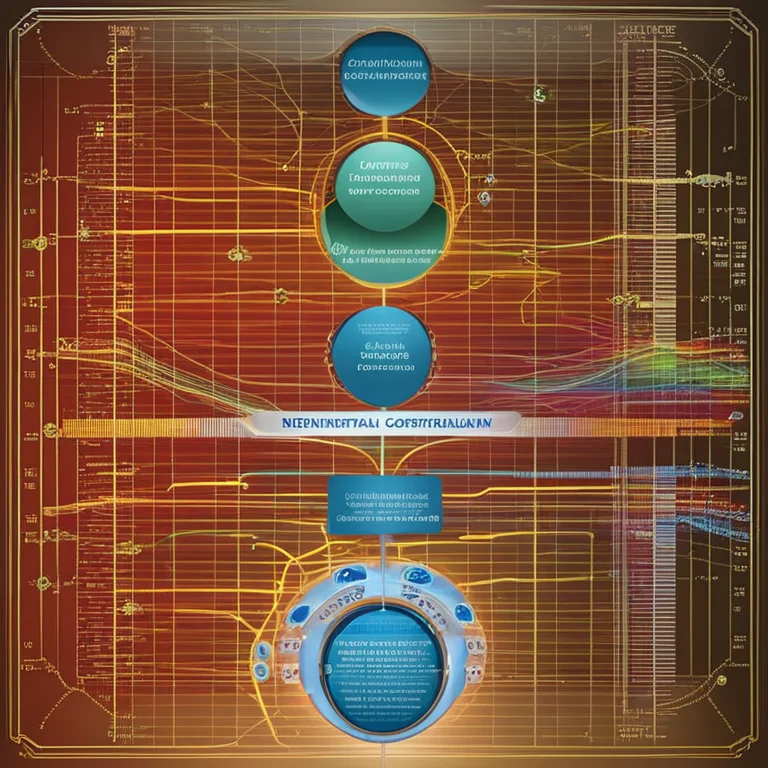
How Meditation Reshapes Your Brain
Discover the profound effects of meditation on brain structure and function with current insights and scientific findings.
article by Hina Kurosawa
The Science Behind Meditation
Meditation, once an esoteric practice rooted in various cultural and religious traditions, has now become a subject of keen scientific interest. Brain imaging technologies such as fMRI and EEG have enabled researchers to delve deep into the cerebral wonders of meditation. These studies reveal that regular meditation can lead to significant changes in brain areas associated with memory, sense of self, empathy, and stress. Moreover, the practice has been seen to enhance the brain's neuroplasticity – the ability to form new connections and reorganize neural pathways over time.

Impact on Brain Wave Patterns
Engaging in meditation has been shown to alter brain wave patterns, specifically increasing alpha, theta, and gamma waves, which are associated with relaxation, creativity, and heightened learning. This shift in brain waves is indicative of the mind's transition into a state of deep calm and heightened awareness. Consistent meditators often report enhanced focus and concentration, both of which are correlated with these altered brain wave states. The changes are not just momentary; long-term meditators experience lasting effects, suggesting durable rewiring of brain activity.

Cortical Thickness and Gray Matter
Studies highlight that meditation doesn't just change functionality; it can also alter brain structure. For instance, meditation practitioners have been observed to have thicker cortical regions related to attention and sensory processing. Furthermore, increases in gray matter concentration – particularly in the hippocampus, known for its role in learning and memory – have been documented. These findings suggest that meditation can slow the natural age-related decline in cortical structure, possibly contributing to a sharper, more resilient brain.

Emotional Regulation and the Amygdala
The amygdala, our brain's emotional center, also reacts to meditation. Research indicates that meditation can lead to reduced amygdala activity, correlating with lessened anxiety and a more balanced emotional state. Such changes point to an increased ability to regulate emotions effectively, offering a potential therapeutic mechanism for those dealing with emotional disorders. With meditation's calming influence, the amygdala seems to react less to stress, providing a sense of equanimity even in challenging situations.

Meditation and Stress Reduction
One of the most significant benefits of meditation is stress reduction. The practice has been shown to decrease the production of the stress hormone cortisol. This biochemical change is key in alleviating feelings of stress, anxiety, and depression. As a result, meditators often experience improved mental health and a decreased risk of stress-related diseases. It's no wonder that meditation programs have been incorporated into treatments for various conditions, including heart diseases and psychological disorders.
Enhancing Connectivity: The "Default Mode Network"
Within the brain lies a network called the "default mode network" (DMN), which is active when one's mind is at rest and not focused on the outside world, often associated with self-referential thoughts and mind-wandering. Through meditation, there is evidence of reduced DMN activity, which is thought to correlate with fewer ruminative thoughts and an improved sense of well-being. Additionally, meditation seems to bolster connectivity between different brain regions, promoting more efficient information processing.
Integrating Meditation into Daily Life
While the depth of these brain changes can be more pronounced in long-term practitioners, even those new to meditation can reap notable benefits. As research evolves, it becomes increasingly clear that incorporating meditation into one's daily routine could be critical for maintaining a healthy, vibrant brain. To this end, apps, online courses, and various programs offer accessible ways to integrate this ancient practice into modern life.
Published: 1/9/2024
Modified: 1/9/2024
More predictions
Come back here soon to learn more about yourself and your future


Mindful Rest: Integrating Meditation & Sleep for Well-being
Discover the synergy of meditation and sleep in enhancing mental, emotional, and physical health. This article delves into practices that combine these powerful restoration tools.


Retreat into Serenity: A Meditation Haven
Discover the transformative power of a meditation retreat and find tranquility for mind, body, and spirit in our comprehensive guide.


The Harmony of Meditation and Sleep
Discover the synergistic benefits of meditation for enhancing sleep quality and overall well-being in this insightful article.